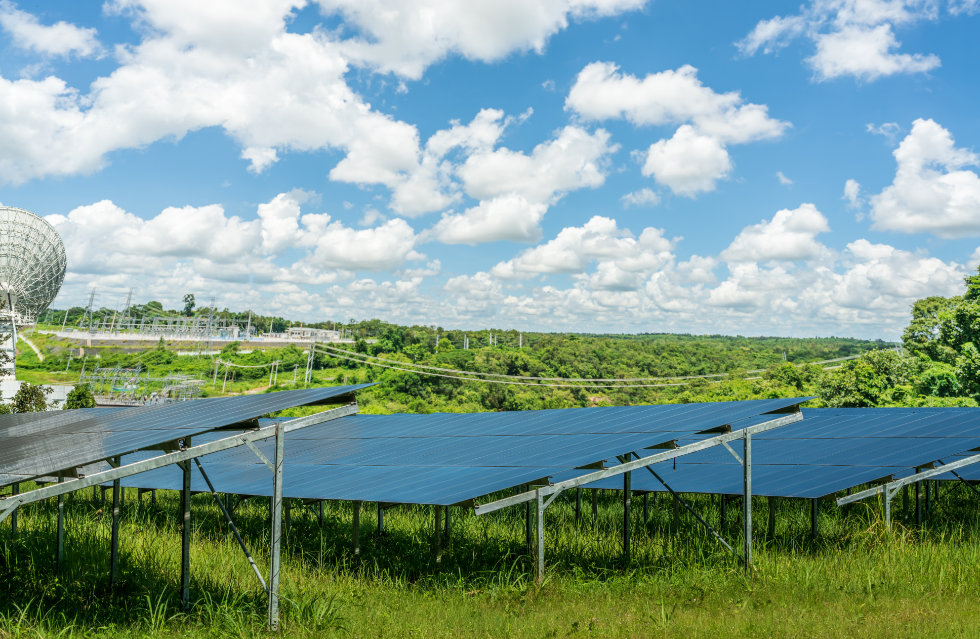The global coffee industry has been booming, with an estimated 2.25 billion cups of coffee consumed every day, making it a crucial part of many people’s daily routines. However, the environmental impact of coffee farming is an essential aspect to consider for those who love this beverage. Sustainable coffee farming and carbon zero practices are necessary for the planet and, ultimately, for the entire coffee industry.
In this article, we will discuss how supporting carbon zero, ethical, and environmentally friendly practices can make coffee farming more sustainable.
Carbon Zero Practices
What are Carbon Zero Practices?
Carbon zero practices are an essential component of sustainable coffee farming and aim to minimize greenhouse gas emissions throughout the process. These practices involve adopting innovative strategies to reduce the environmental impact of coffee farming while striving to achieve net-zero carbon footprint at the same time.
The ultimate goal of carbon zero practices in coffee farming is to create a more earth-friendly industry, protect natural resources, and combat climate change.
Examples of Carbon Zero Practices in Coffee Farming
Conservation of Shade Trees: Shade trees play a pivotal role in creating a healthy ecosystem, maintaining biodiversity, and reducing carbon emissions on coffee farms. These trees act as a carbon sink, absorbing carbon dioxide from the atmosphere and converting it into biomass through photosynthesis.

Furthermore, maintaining shade trees in coffee farms can help prevent deforestation, providing habitat for numerous animal species while promoting biodiversity. By supporting these shade-growing methods, coffee consumers can contribute to minimizing the global carbon footprint.
Adopting Agroforestry Systems: Incorporating agroforestry practices into coffee farming involves integrating crops, trees, and livestock into a single farming system. This approach has multiple benefits, such as improving soil fertility through nutrient cycling, enhancing carbon sequestration in soil and vegetation, preventing soil erosion, and promoting biodiversity. Additionally, the forest products obtained through agroforestry can offer supplementary income for small-scale farmers, thus contributing to their financial stability.
Reducing Energy Consumption: The utilization of energy-efficient tools and methods can vastly decrease the carbon emissions from coffee production. This includes using energy-efficient roasting machines, designing low-energy coffee processing methods, and using energy-saving lighting and ventilation systems in facilities. Moreover, encouraging the use of renewable energy, such as solar, wind, or biomass, can further reduce coffee production’s dependence on fossil fuels and minimize energy-related emissions.
Transportation and Packaging: Carbon zero practices in coffee farming extend beyond production techniques by considering the transportation and packaging of coffee beans. Supporting local coffee production reduces the transportation distances and associated emissions from shipping worldwide. Additionally, advocating for eco-friendly packaging materials, such as biodegradable or compostable bags and recyclable containers, helps decrease the carbon footprint associated with coffee transport and disposal. Using bulk packaging when transporting coffee beans can also contribute to reducing the packaging waste generated in the coffee supply chain.

Carbon Offsetting Initiatives: Coffee producers can offset their remaining carbon emissions by investing in carbon offset projects. These projects, such as reforestation initiatives or renewable energy developments, remove or
prevent an equivalent amount of greenhouse gas emissions, ultimately rendering the producer’s operations carbon neutral. By participating in or supporting these initiatives, coffee farmers can contribute significantly to the overall reduction of carbon emissions in the industry.
Implementing Innovative Agricultural Practices: The adoption of innovative agricultural practices, such as the use of cover crops, crop rotation, and reduced tillage, can not only improve soil fertility but also reduce greenhouse gas emissions significantly. Practices that promote healthy soil sequester more carbon, provide long-term benefits to coffee farmers, and contribute towards a more sustainable coffee production system.
Education and Awareness: Empowering coffee farmers with knowledge and information regarding the benefits of carbon zero practices is essential for widespread adoption of such methods. Providing training workshops and extension services to farmers can encourage them to adopt innovative and eco-friendly practices, thus promoting a greener coffee industry.
Supporting and implementing carbon zero practices in coffee farming, we can work towards creating a more sustainable industry that benefits not only the environment but also the livelihoods of those involved in coffee production. As consumers, we have the power to influence this change by being conscious of our choices and opting for coffee produced by environmentally-responsible methods, thus promoting a greener future for the planet.
Ethical Practices in Sustainable Coffee Farming
Fair Wages for Workers and Safe Working Conditions: Prioritizing the welfare of workers and ensuring their safety is a fundamental aspect of ethical coffee farming practices. Providing adequate remuneration, safe working conditions, access to necessary personal protective equipment, and appropriate training for equipment handling are essential components of this practice. Giving workers the opportunity to improve their skills through training programs can significantly contribute to their personal development and, in turn, enhance the overall sustainability of coffee farming.
Promoting Gender Equality: Gender equality plays a crucial role in fostering a sustainable coffee industry. Encouraging women’s participation at all levels, from farming to management roles, can help create a more inclusive work environment. Involving women in the decision-making process and providing equal opportunities for their professional growth can lead to innovative solutions and a stronger, more resilient coffee farming sector. Furthermore, promoting gender equality often leads to positive spillover effects, such as improved health, education, and well-being within the workers’ families and communities.
Respect for Local Cultures and Communities: When designing and implementing sustainable coffee farming practices, it’s essential to consider the local context, culture, and community. Including local communities in decision-making processes and incorporating traditional ecological knowledge into modern farming practices can help preserve cultural heritage while fostering trust and respect between farmers and local populations. Additionally, engaging with indigenous and local communities can contribute to socio-economic development by creating new job opportunities and supporting local businesses through sourcing materials and services.
Child Labor Eradication: Child labor is a persistent issue in coffee farming, with children often employed in hazardous conditions, and it has a long-lasting negative effect on their health, education, and development. Tackling this issue is crucial for ethical coffee production. Ensuring compliance with national and international labor laws, investing in educational programs, and providing employees with information on children’s rights are essential steps to eradicate child labor in coffee farming.
Transparency and Traceability: Ensuring transparency in coffee supply chains is necessary to guarantee the ethical production of coffee beans. By adopting traceability systems, coffee producers can demonstrate their commitment to ethical practices, allowing consumers to make informed choices. Transparency also helps build trust and collaboration between different actors in the coffee supply chain, fostering a more sustainable industry.
Supporting Smallholder Farmers: Smallholder farmers often face numerous challenges, including low-income levels, limited access to resources, and minimal bargaining power in coffee markets. Supporting these farmers through capacity-building programs, access to affordable credit, and promoting direct trade relationships can significantly improve their livelihoods and contribute to greater sustainability in the coffee industry. Encouraging smallholder farmers to participate in farmer cooperatives can help them gain better access to resources, share knowledge, and advocate for their rights collectively.
Certification and Verification: Voluntary certifications, such as Fairtrade, Rainforest Alliance, and UTZ, play a vital role in promoting ethical practices in coffee farming. These certifications provide coffee producers with guidelines and standards for labor conditions, environmental management, and overall sustainability. By adhering to these standards and undergoing third-party audits, certified producers can effectively communicate their commitment to ethical and sustainable practices to consumers, incentivizing buyers to choose their products and support their efforts.
Environmental Stewardship: Promoting environmental stewardship among coffee farmers is an essential aspect of ethical coffee farming. This can include adhering to strict environmental standards, protecting natural resources and ecosystems, and preventing pollution caused by agrochemicals or waste from coffee processing. Encouraging environmentally responsible practices can improve the ecological health of coffee-growing regions and ensure the long-term sustainability of the industry.
Environmentally Friendly Practices in Sustainable Coffee Farming
Use of Organic Materials to Fertilize Crops: Implementing organic farming methods, including applying compost and organic fertilizers, reduces the use of synthetic chemicals that can harm the soil, water sources, and surrounding ecosystems.
Adoption of Water Conservation Methods: Utilizing drip irrigation systems, rainwater harvesting, and proper water management techniques can help conserve water in coffee farming, promoting environmental sustainability.
Utilization of Renewable Energy Sources: Encouraging the use of renewable energy sources, such as solar, wind, and biofuels, can reduce the industry’s dependency on fossil fuels, decreasing greenhouse gas emissions in coffee farming and processing.
The Last Drop
As coffee consumers and industry professionals, we all have a role to play in promoting sustainable coffee farming practices. When supporting carbon zero, ethical, and environmentally friendly practices in the coffee supply chain, we can contribute to a more sustainable and ethical coffee industry.
The next time you enjoy a delicious cup of coffee, take a moment to think about how your choices can contribute to creating a greener, fairer, and more sustainable coffee farming environment for future generations to enjoy.








